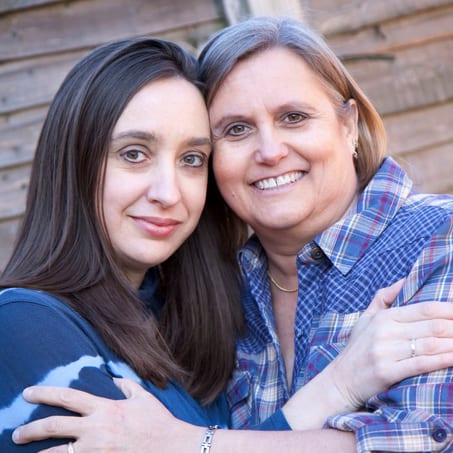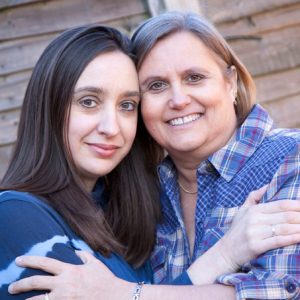For the holidays, GetEQUAL and Out4Immigration have been telling stories of same-sex couples forced to choose between country and partner.
Several of those stories involve Texas couples.
Art, a U.S. citizen from San Antonio, and Stuart, a citizen of the U.K.. are an example of a couple struggling to stay together despite U.S. marriage and immigration laws.
GetEQUAL’s Heather Cronk wrote in a press release that for more than 36,000 binational same-sex couples, holidays are times of sadness and loneliness, as LGBT Americans are prohibited under the Defense of Marriage Act from sponsoring their same-sex partner for immigration purposes.
Despite the White House’s refusal to defend the law in court, Congressional Republicans have spent $1.5 million defending the law in 14 pending cases and hit the spending limit set forth with the approval of the Committee on House Administration.
After the jump, read the stories of Texas couples Art and Stuart and Sally and Tammy.
Art and Stuart
I am a music teacher in San Antonio, Texas, and have spent much of my life developing a mastery of the piano, the organ, and the voice. I also love computers and online social networks, which is where I ultimately met my [now] husband, Stuart Metcalfe(-LeSieur).
Three years ago, I found Facebook — and thus a limitless opportunity to meet all sorts of people from all over the world. I was just coming out as a gay man and found the freedom of Facebook to be an incredibly powerful way to explore my emerging identity. As I waded through new Facebook friends, one in particular caught my attention — Stuart. I watched a video he had posted to Facebook — complete with charming British accent, which I immediately recognized after having been stationed in the United Kingdom while in the military. He was putting himself down for how he looked on camera, and I wrote back to affirm how great the video was — beginning an ongoing conversation of texts, chats, emails, and eventually Skype.
The first time we Skyped, I was so nervous and flustered that the only thing I could manage to get out was, “Hi! I like Monty Python!” Stuart was patient with me, suggesting that I might want to check out some more updated forms of British humor — and thus we began a friendship based in humor and deep conversations about nearly everything under the sun. As I went through a painful divorce that summer, Stuart was one of my biggest emotional supports — and my family soon welcomed him into the fold through Skype sessions of their own.
We continued to navigate our emerging relationship and tried to cobble together the money to see and talk with one another across the distance. I had never thought about the lengths that binational same-sex couples go to in order to be with one another, and the stress that adds to new — and even seasoned — relationships. We finally uttered the “L” word to one another — declaring our love even as Stuart was traveling in Egypt and I was in South Texas. When Stuart visited me in San Antonio soon thereafter, I dropped to one knee and asked him to marry me. He said yes, and we spent the next 19 months trying to figure out how to navigate the process of getting married in the United States and building a life here with my children.
My parents gave their blessing wholeheartedly and we married in my hometown in Massachusetts by a long-time friend of the family. Stuart can only visit the U.S. twice a year for about three weeks at a time, and we have no mechanism for him to move here permanently as long as the Defense of Marriage Act (DOMA) is in place. His visits here require massive overtime work from him in order to afford each trip and to build up vacation days to spend with me. Those visits are met with great anticipation but, even with the joy of his arrival, there is always a looming sadness that the clock is ticking until his departure. Each time I drop him off at the airport, it’s like having my entire being ripped out of my body. Losing my spouse for such long periods of time tears me apart spiritually and emotionally — our home runs so beautifully when our children have two loving fathers physically at home, but I become overwhelmed when I return again to being a single father.
Despite being legally married in the state of Massachusetts, we cannot apply for a spousal visa so that Stuart and I can build a life together here in the United States. No marriage should have to endure this kind of stress and separation simply because of a discriminatory law. We’re simply asking for a chance to be together and to share the same civil rights that our friends, neighbors, and family enjoy. Holidays are especially difficult — it’s hard to decorate the house or enjoy the season when I’m longing for the day I can wake up early on a holiday morning to share a cup of coffee with my husband. Until the day that we truly see equal protection under the law for all, I’m left holding that cold cup of coffee alone — longing for the warm and loving home that my husband and I deserve.
Early in 2003, I was coming out of an emotionally abusive, 24-year marriage to a man. Searching for support online, I finally found a message board that not only gave me an outlet for healing after this abuse, but also an outlet to explore emerging questions I was having about my sexual orientation. I connected with one of the forum members, Sally, immediately – finding much in common in our pasts, but also finding much in common in the futures we were creating for ourselves. Forum messages progressed to emails and instant messages before we knew it and, over the course of many months, it seemed as though our friendship had grown to much more.
Sally and Tammy
Sally lived in England and I lived in Texas – presenting a logistical challenge that I had never imagined. Later that year, I traveled to England to see if what we felt was a passing friendship or something deeper. We spent five days together that were heaven on earth – before reality came crashing down around us. When she drove me to the airport at the end of those five days, we weren’t sure if we would ever see each other again. I traveled back to Texas and began exploring what steps I would need to take in order for us to be together.
I sold my business, got a more flexible job, and we began traveling back and forth between the U.K. and the U.S. We ran up thousands of dollars in phone bills and plane tickets before deciding to get legally married in Canada with the hopes of helping our situation. I proposed to her on a trip to Washington State and we married in Toronto in July 2004. We honeymooned in Mexico and were forced to again go our separate ways, hoping that we would soon be able to be together permanently.
Oh, now naïve we were in those days! We soon learned that the Defense of Marriage Act (DOMA) prohibits the government from recognizing our marriage or allowing me to sponsor Sally for immigration purposes. We were grasping at straws at that point, and started to find other couples online who were dealing with similar situations – a bittersweet discovery, to be sure.
We finally realized that the only way for us to live together as a married couple would be for me to move to the U.K. I was ultimately granted a visa under the Highly Skilled Migrant Programme and left behind my entire life – including my two daughters, extended family, and friends – to start over. Never in a million years did I think that, in 2012, I would still be living in England.
Eight years ago, I assumed that passage of the Uniting American Families Act would be a sure thing once people saw the injustice of the U.S. immigration system, and that we would soon be able to move back to the U.S. Though I’ve rebuilt my career in England and found a place that accepts me for who I am, the same cannot be said for my home country.
My older daughter has since married and has two beautiful boys – my two grandsons. My younger daughter has struggled financially – I’ve been forced to care for her from across an ocean, tearing my heart apart each day. We’re occasionally able to go back to the U.S. for short visits, but do so rarely because Sally is so fearful of going through immigration after being detained once before. As an American citizen, I’m embarrassed at the way my country treats me, but horrified by how my country treats my wife.
My grandchildren, now 3½ and 20 months, only really know me by voice and through the Internet. I’m not able to be a proper grandmother to them, nor can I support the rest of my family as I wish. Two years ago, my father committed suicide – because of DOMA, I wasn’t there to support my brother as we grieved our father because my government chooses to discriminate against me.
I’m not there for birthdays, Thanksgiving dinners, Christmas morning deliveries from Santa Claus, Easter egg hunts, or Mother’s Day lunches. I’ll miss my grandsons reveling in their Thanksgiving meal today, and I won’t be able to cook them the secret family sugar cookie recipe. For yet another year, I can’t watch them open the presents I sent for them next month for Christmas. I’ve lost years of those holiday memories and I will never get them back. I have been married to my soul mate for over eight years now, and have been living in exile for seven them. I will continue to miss years of holiday celebrations unless DOMA is repealed or LGBT-inclusive comprehensive immigration reform is passed. I deserve to see my grandsons grow up – I deserve to be equal.

















